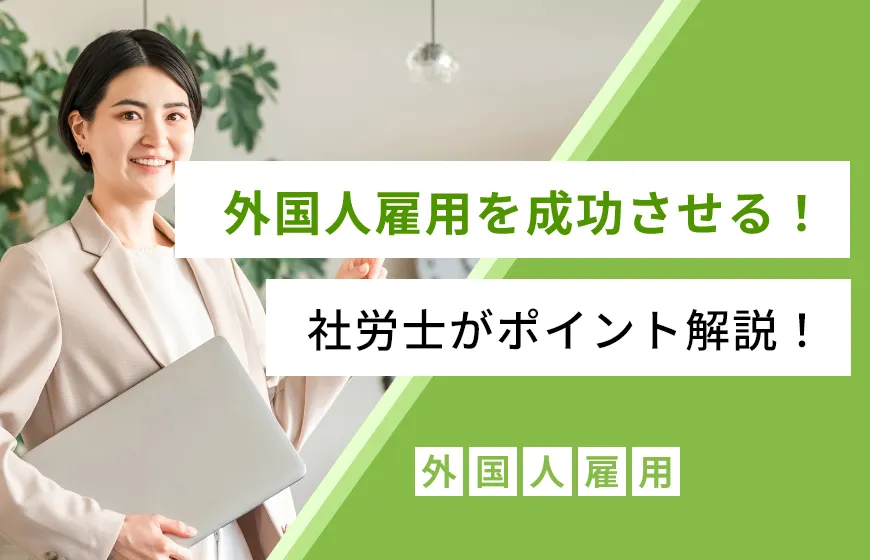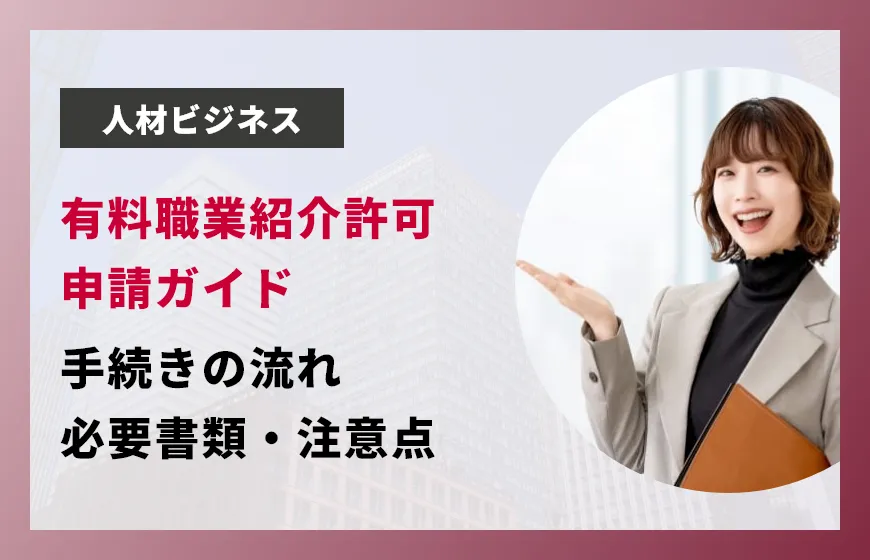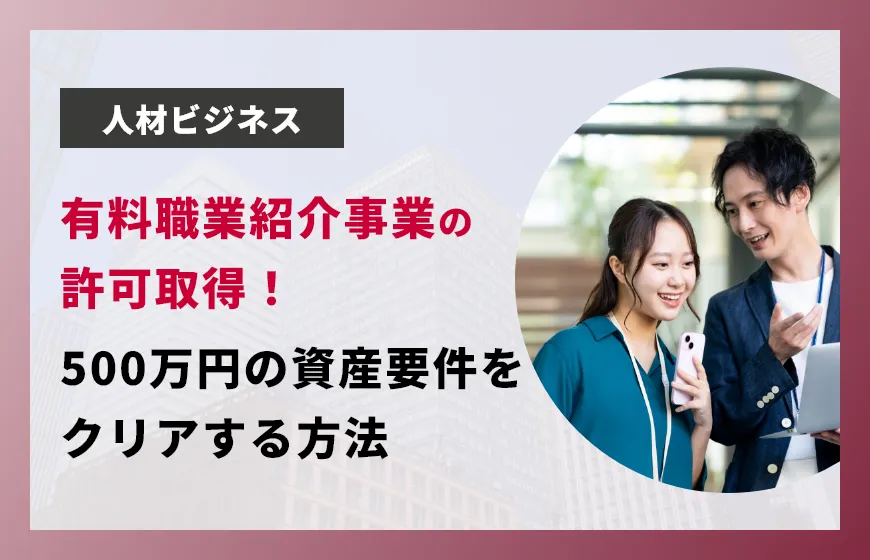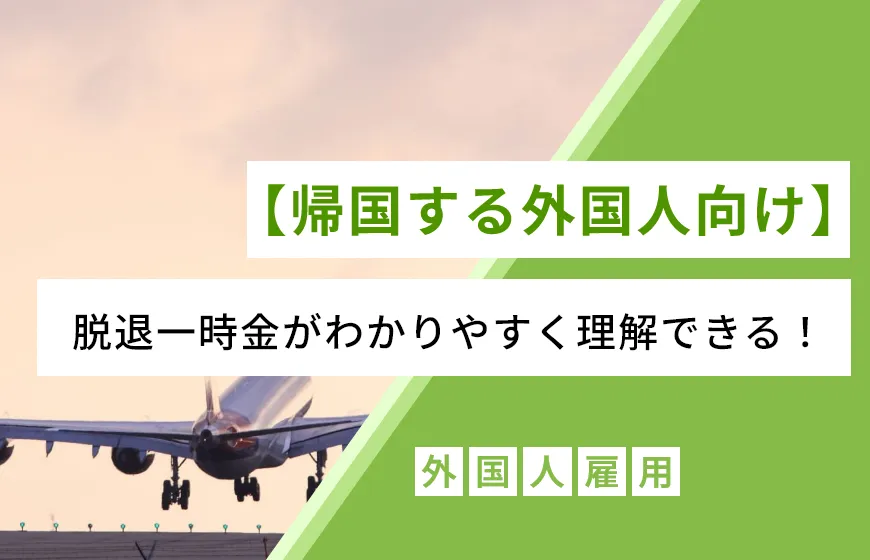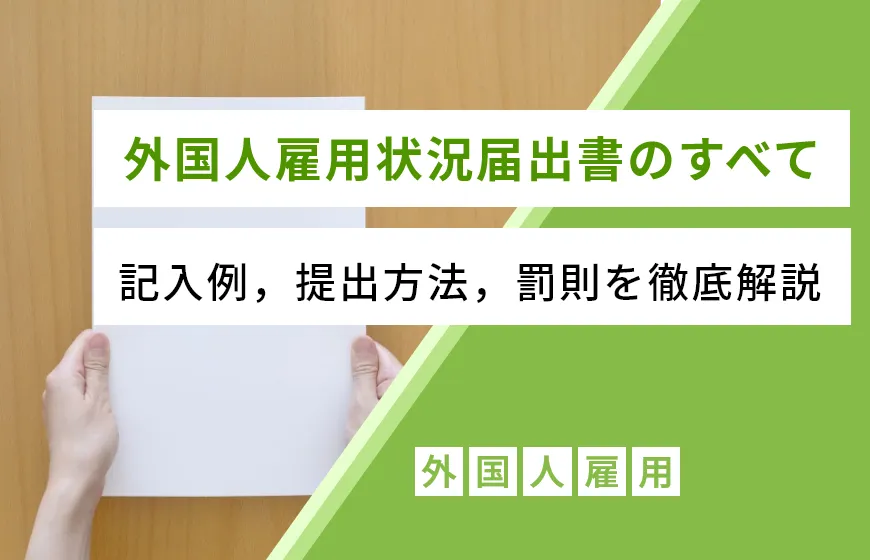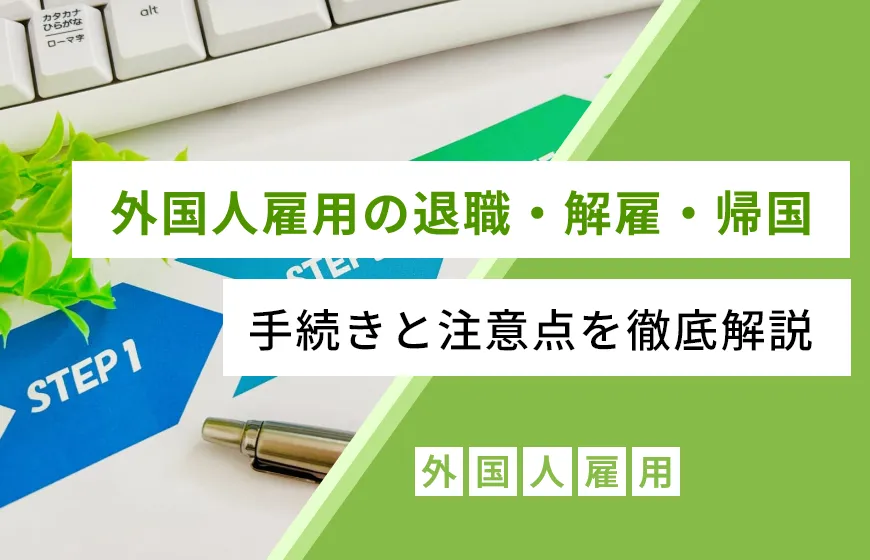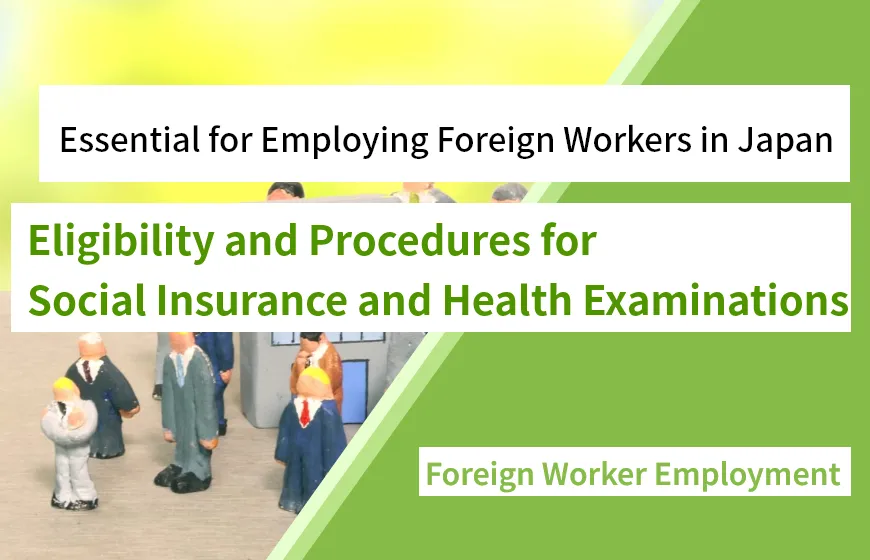
When employing foreign workers, in many cases companies are required just as with Japanese employees to enroll them in social insurance and to conduct health examinations. From a compliance standpoint, employers must take appropriate measures.
This column answers practical questions such as “What are the eligibility requirements for social insurance enrollment for foreign workers?” and “At what timing is a health examination required?” From an occupational social insurance consultant’s perspective, we clearly explain the social insurance framework, specific enrollment procedures, points of caution, and the implementation and management of health examinations.
まずはお気軽に無料相談・
お問い合わせください!
目次
1. Basics of Social Insurance Employers Must Know
For companies that employ foreign workers, understanding Japan’s social insurance is essential. Social insurance is a public safety net for workers and their families, and in many cases employers have an obligation to enroll workers. First grasp the overall system, then confirm enrollment obligations for foreign workers.
1-1. What Is Japan’s Social Insurance System?
Japan’s social insurance supports workers and their families through public schemes. The main programs are below.
The Five Components of Social Insurance (the “Five Major” Insurances)
- Health Insurance
Provides coverage for medical expenses and allowances in case of illness, injury, and childbirth. - Employees’ Pension Insurance
Provides pension benefits upon old age, disability, or death. - Employment Insurance
Provides benefits in case of unemployment and during childcare/nursing-care leave. - Workers’ Accident Compensation Insurance (Workers’ Compensation)
Compensation for work-related accidents and commuting-related injuries. - Long-Term Care Insurance
A system that provides services and support related to nursing care.
※Applies only to eligible persons aged 40 and over.
These are, in principle, required to be applied/enrolled when a company hires regular employees, fixed-term employees, and some part-time employees.
The conditions requiring enrollment are explained below.
1-2. Social Insurance Enrollment Obligations for Foreign Workers
Foreign workers are obliged to enroll in social insurance on the same basis as Japanese workers.
Basic Principles
Basic Concept of Social Insurance Enrollment
- Applicable to workers engaged in employment in Japan regardless of nationality.
- Determined based on factors such as “form of employment contract,” “working hours,” and “wages.”
- Not only for work-status visas such as “Engineer/Specialist in Humanities/International Services,” “Specified Skilled Worker,” and “Technical Intern Training,” but also applicable to other statuses (e.g., “Dependent”) if conditions are met.
Specifically:
- If the prescribed weekly working hours are 20 hours or more and there is a prospect of employment for 31 days or longer
→ Enrollment in Employment Insurance is required. - If the prescribed weekly working hours and prescribed monthly working days are at least 3/4 of those of a regular employee
→ Enrollment in Health Insurance and Employees’ Pension Insurance is required.
※Depending on conditions, short-time workers may also be covered.
Even if a foreign worker is scheduled to return to their home country in the future, as long as they work in Japan as an employee, in principle they fall under the scope of social insurance and must proceed with the appropriate procedures.
2. Eligibility and Procedures for Social Insurance
Health Insurance, Employees’ Pension Insurance, Employment Insurance, and Workers’ Accident Compensation Insurance each have different eligibility criteria and procedures. Below we explain each system in an easy-to-understand manner.
2-1. Health Insurance — Eligibility & Procedures
Health Insurance is a system that subsidizes medical expenses for illness, injury, and childbirth, and provides income compensation (e.g., sickness allowance, maternity allowance).
Eligibility
For full-time regular employees, in principle, enrollment in Health Insurance and Employees’ Pension Insurance is required.
Even if not a regular employee, if all of the following conditions are met, enrollment becomes mandatory under the “special rule for short-time workers” (meaning that part-time and temporary workers may also be covered by social insurance)
- Prescribed weekly working hours of 20 hours or more
- Monthly wage of 88,000 JPY or more (annual income approx. 1.06 million JPY)
- Expected period of employment exceeding two months
- Not a student (excluding nighttime/correspondence, etc.)
- Employed at a business establishment with 51 or more employees
Procedures for Enrollment
- Timing: Within 5 days after employment
- Documents: “Notification of Acquisition of Eligibility for Health Insurance”
- Submission to: the Pension Office, or the health insurance society to which the employer belongs
※If enrolled in Japan Health Insurance Association (Kyokai Kenpo), submit to the Pension Office; if enrolled in a health insurance society, submit to the relevant society.
2-2. Employees’ Pension Insurance — Eligibility & Procedures
Employees’ Pension Insurance is the public pension system covering old age, disability, and death for workers employed by companies. It differs from “National Pension,” which covers self-employed persons, students, and unemployed persons, and instead covers employed persons (insured workers).
Eligibility
Same conditions as for Health Insurance:
- Prescribed weekly working hours of 20 hours or more
- Monthly wage of 88,000 JPY or more
- Expected employment period exceeding two months
- Not a student
- Business establishment with 51 or more employees
Procedures for Enrollment
- Can be applied for at the same time as Health Insurance
- Submission to: Pension Office
- Documents: Can use the same forms used for Health Insurance
【Supplement】 – Difference from National Pension –
Japan’s public pension system has a two-tier structure of “National Pension” and “Employees’ Pension Insurance.”
| Category | National Pension | Employees’ Pension |
|---|---|---|
| Who | ・Self-employed ・Students ・Unemployed | ・Company employees ・Civil servants |
| Premium | Flat monthly amount | Earnings-related (salary/bonus) |
| Burden | Generally 100% by the individual | Split equally between employer & employee |
| Enrollment | Individual files at city office | Employer files at Pension Office |
Even for foreign workers, if they are employed by a company, they enroll in “Employees’ Pension Insurance.”
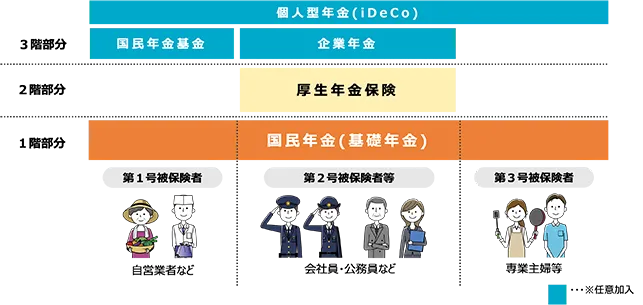
Reference: Ministry of Health, Labour and Welfare, “Japan’s Public Pension Is ‘Two-Tiered’.”
2-3. Employment Insurance — Eligibility & Procedures
Employment Insurance is a system that, in addition to supporting livelihood during unemployment, provides benefits during childcare leave and nursing-care leave as well as education and training benefits.
Eligibility
- Prospect of employment for 31 days or longer
- Prescribed weekly working hours of 20 hours or more
- Not a student
Procedures for Enrollment
- By the 10th of the month following the month of hire
- The company submits the “Notification of Acquisition of Insured Status for Employment Insurance” to Hello Work (Public Employment Security Office)
※Since entry of residence card information is required, obtaining and checking a copy at the time of hire will make the process smoother.
2-4. Workers’ Accident Compensation Insurance — Eligibility & Procedures
Workers’ Accident Compensation Insurance provides compensation for medical treatment, leave of absence, and survivors in the event of accidents or illnesses occurring during work or commuting.
Enrollment Obligation
- Any business that employs even one worker has an obligation to enroll
- Foreign workers are covered unconditionally
Procedures for Enrollment
- At the time the company first employs workers
- The company submits the “Notification of Establishment of Workers’ Accident Compensation Insurance Relationship” to the Labour Standards Inspection Office
3. Premium Calculations and Cautions
“Social insurance premiums,” which apply to all workers including foreign workers, are borne equally by both the company and the employee.
However, among foreign workers unfamiliar with Japan’s social insurance system, there are cases of misunderstanding for example, some believe “the amount deducted from salary is the company’s cut,” or that “the company pays the full amount.”
Therefore, carefully explaining the system and the calculation mechanism at the time of hiring helps prevent problems later.
3-1. How Premiums Are Calculated
The calculation formulas and rules differ by insurance type. The outlines of the four main insurances are as follows.
Employees’ Pension Insurance / Health Insurance
- Formula
Premium = Standard Monthly Remuneration × Premium Rate - What is “Standard Monthly Remuneration”?
It is calculated by averaging wages paid from April to June each year and determining a grade based on a table, thereby simplifying premium calculations. - Premium Rates (as of 2025)
Employees’ Pension Insurance: uniform 18.3%
Health Insurance: varies by region and is reviewed once a year (in March) - When paying bonuses
Apply the premium rate to the total amount of bonuses (amounts below 1,000 JPY are rounded down) - Burden sharing
Equally shared by labor and management (half by the company and half by the employee)
Employment Insurance
- Formula
Premium = Total Wages × Employment Insurance Premium Rate - Characteristics
Varies according to monthly wages
Bonuses are included
The premium rate differs by type of business and is revised every April - Example for FY2025 (general business)
Employee: 0.55%
Employer: 0.9%
Total: 1.45%
Reference: Ministry of Health, Labour and Welfare, “Information on Employment Insurance Premium Rates for FY 2025 (Reiwa 7)” - Burden sharing
Different shares for employer and employee (the employee bears only a portion of the total)
Workers’ Accident Compensation Insurance
- Formula
Premium = Total Wages × Workers’ Compensation Premium Rate - Characteristics
The rate varies by industry (higher for construction and manufacturing, etc.)
Payment is made each year between June 1 and July 10 based on the previous year’s results - Burden sharing
Fully borne by the employer
3-2. Practical Cautions About Premiums
When calculating social insurance premiums, note that not only monthly salary or hourly wages but also other forms of remuneration may be included.
Points to Note
- ① In-kind remuneration may also be included.
In such cases, convert to cash value and include.
Examples: company dormitory or housing, meals provided;
commuter passes, company products, etc. - Commuting allowances, overtime pay, and various allowances are included in premium calculations.
- Because discrepancies can easily occur in standard monthly remuneration, an annual review is necessary.
- Bonuses are also subject to separate premium calculations.
4. Health Checkups for Foreign Workers
Companies that employ workers are obligated to conduct health examinations at least once a year, and this obligation equally applies to foreign employees as it does to Japanese employees. This chapter explains in a clear manner the legal obligations and types of health examinations, costs and how to take exams, and key points for managing results.
4-1. Legal Obligation and Types
Health examinations are mandated for employers under the Industrial Safety and Health Act. The same applies to foreign workers, and the types vary according to job content. Let’s review them in order.
- General Health Examination
- Special Health Examination
- Health Examination for Workers Engaged in Specified Operations
General Health Examination
Eligible persons:
All employees who are regularly employed
Timing of implementation
- At the time of hiring
- Once within every 1-year period thereafter (periodic health examination)
Main test items
- Survey of medical history and job history
- Confirmation of subjective and objective symptoms
- Measurement of height, weight, vision, and hearing
- Blood pressure measurement, urinalysis, and blood tests
Special Health Examination
Eligible persons:
Workers engaged in hazardous operations (organic solvents, specified chemical substances, dust, etc.)
Timing of implementation
- At the time of hiring
- At the time of reassignment
- Once within every 6-month period (periodic)
Health Examination for Workers Engaged in Specified Operations
Examples of applicable operations
- Night work
- Work in hot or cold environments
- Vibration work or other tasks imposing heavy physical burdens
Timing of implementation
- Upon assignment to the relevant operations
- Once within every 6-month period
4-2. Costs and How to Receive Exams
When conducting health examinations, companies are obligated to do so at their own expense. The costs and methods are as follows.
Cost burden
- In principle: fully borne by the employer
※Because this is a legal obligation, not a welfare benefit - If the worker chooses and wishes to be examined by a physician of their own selection, the employer is not required to bear that cost
Options for receiving examinations
- Examination at a medical institution contracted by the employer
- The worker individually visits a medical institution, with costs borne by the company or the worker
Considerations for foreign workers
- Support that considers language barriers is important
- Provide multilingual medical questionnaires
- Arrange interpreters
- Depending on results, coordinate with medical institutions for further tests or treatment
Companies must establish a system that allows foreign workers to undergo examinations with peace of mind and provide advance guidance on costs and procedures.
4-3. Managing Results and Key Cautions
Health examination results are not merely medical information; they are one basis for protecting workers’ health. Companies are required to appropriately manage and utilize the results. By respecting physicians’ opinions and making arrangements so that work can be performed without undue burden, employers can build good relationships with their workers.
Recording and retention of results
- Retention period: 5 years
- Strict management is required under the Act on the Protection of Personal Information
- By recording changes in results, the long-term health status of workers can be monitored
Early detection of abnormalities and follow-up
- Arrange re-examinations or detailed examinations based on physicians’ opinions
- If abnormalities are found in special health examinations, prompt response is especially required
Workplace measures
Depending on the results, measures such as the following may be necessary:
- Reduction or restriction of duties
- Reassignment
- Shortening of working hours, etc.
4-4. Points Unique to Foreign Workers
If you guide foreign workers through the health-exam process in the same way as Japanese workers, cultural, religious, and linguistic barriers can cause confusion. Pay attention to the following points.
- Improvements in advance guidance
・Because many are unfamiliar with Japan-specific rules such as dietary restrictions from the day before (fasting, no alcohol), providing notices in the worker’s native language or offering translation helps.
・Japan-specific tests such as barium studies and chest X-rays can cause anxiety without explanation; it is important to explain the purpose and process in advance. - Religious and cultural considerations
・For Muslim workers, it may be necessary to avoid examinations of female workers by male physicians. If possible, arrange physicians and interpreters by gender.
・Regarding dietary restrictions, be prepared to handle matters during Ramadan by adjusting examination times and accepting individual consultations. - Confirm the worker’s level of understanding
・When notifying results, avoid overly technical terms and explain in an easy-to-understand way.
・As needed, cooperate with internal foreign-worker support staff or external interpreters to set up explanatory sessions to prevent misunderstandings.
[Supplement] – Japan-Specific Health Examination Items and Characteristics –
① Barium Examination
- In Europe, the U.S., and Southeast Asia, barium examinations are rarely performed; endoscopy (gastroscopy) or questionnaire-based screening is more common.
- Many foreign workers are surprised by the taste, difficulty of drinking, and difficulty of expelling barium, and may feel uneasy about the laxatives provided after the examination.
Examples of responses
- Explain the purpose (early detection of gastric cancer) and pre-exam preparation (fasting, changing clothes).
※Especially among women, there are often concerns that examination gowns are thin and embarrassing; therefore, give detailed explanations in advance about changing clothes. - If they do not wish to undergo barium, provide information on alternative tests (e.g., gastroscopy at their own expense).
② Chest X-ray (Tuberculosis Screening)
- In many European and U.S. countries, TB prevalence is low and screening is not mandated.
- In developing countries, X-ray screening may not be sufficiently performed.
Examples of responses
- Explain that in Japan it is conducted as part of tuberculosis control measures.
- If pregnancy is possible, consider measures to avoid X-rays in early pregnancy.
③ Emphasis on Urinalysis and Blood Pressure Measurement
- In some European and U.S. contexts, these may be performed only “for those who need them by age” or “on self-report.”
Examples of responses
- Explain that in Japan these are conducted for everyone and are legally mandated items.
④ The number of “formal” items in health examinations
- Under the Labor Standards framework, periodic health examinations are comprehensively structured; compared to Europe and the U.S., however, follow-up on subjective symptoms and lifestyle habits tends to be lighter.
- In Europe and the U.S., counseling-focused, health-promotion-oriented questionnaires are common.
Examples of responses
- Clarify that in Japan examinations are conducted in the context of “legal compliance” rather than “health promotion.”
- Because explanations in Japanese at medical institutions may be too fast to follow, coordinate with the hospital in advance.
5. FAQs
Regarding the employment of foreign workers, many questions arise about social insurance and health examinations. Here we provide answers in a Q&A format to questions that are particularly common in practice.
FAQ on Social Insurance for Foreign Workers
Q: When employing a foreign worker, are there documents that must be filed?
A: Yes.
When hiring or separating a foreign worker, it is legally required to submit the “Notification of Employment Status of Foreign Nationals” to Hello Work.
If the person is subject to Employment Insurance, submission of the “Notification of Acquisition of Insured Status” or “Notification of Loss of Insured Status” can serve in lieu of a separate notification.
However, if you fail to file or submit a notification with false information, you may be subject to a fine of up to 300,000 JPY, so please exercise caution.
Q: What happens to social insurance when a foreign worker returns to their home country?
A: The details differ depending on the type of social insurance.
- Employees’ Pension Insurance: After returning home, it may be possible to claim a “lump-sum withdrawal payment” (subject to conditions).
- Health Insurance and Employment Insurance: No special procedures are required after returning home (coverage ends on the date of retirement).
Q: Must foreign workers such as Technical Intern Trainees or those on Specified Skilled Worker status be enrolled in social insurance?
A:Yes,
They have the same obligation to enroll as other workers.
Enrollment is required regardless of status of residence if the following conditions are met:
- Prescribed weekly working hours of 20 hours or more
- Prospect of employment for 31 days or longer
- Not a student
Q: Must we explain social insurance premiums to foreign workers in their native language?
A:There is no legal obligation,
but from the perspectives of preventing disputes and promoting understanding, providing explanations in the native language or in plain Japanese is recommended.
It is also effective to utilize pamphlets for foreign nationals issued by relevant agencies or to consult an occupational social insurance consultant.
Examples:
Japan Health Insurance Association “Leaflet for Foreign Insured Persons”
Japan Pension Service “Structure of the Pension Insurance System”
FAQ on Health Examinations for Foreign Workers
Q: Are health examinations received by a foreign worker before coming to Japan valid?
A:If there are health examination results from within three months prior to employment,
the medical check at the time of hiring may be omitted, but because they often do not meet Japanese standards, re-examination in Japan is common.
Q: If a foreign temporary staffing worker is accepted, who has the obligation to conduct health examinations?
A:The responsible party changes depending on the type of health examination:
- General health examination: the dispatching (staffing) agency has the obligation to conduct it
- Health examinations for specified operations: the dispatching agency has the obligation
- Special health examinations: the host company (place of dispatch) has the obligation
※If the host company conducts the examination, a copy of the results must be provided to the dispatching agency.
Q: Is the time spent receiving a health examination included in working hours?
A:It depends on the situation:
- General health examinations: in principle, not included in working hours
(However, it is considered desirable for companies to pay wages at their discretion.) - Special health examinations: in principle, to be carried out during prescribed working hours;
if conducted outside working hours, overtime wage obligations arise.
Q: Is it acceptable to impose work restrictions based on health examination results?
A:Yes.
Taking workplace measures (e.g., reassignment or shortened working hours) based on physicians’ opinions is permitted.
This is also an obligation under the Industrial Safety and Health Act, is important for ensuring workers’ health and safety, and is generally recommended.
6. Conclusion
We covered the essentials of social insurance and health checkups for foreign workers—from the basics to eligibility, procedures, cautions, and FAQs.
Proper enrollment in social insurance and the periodic implementation of health examinations are essential to building a work environment where foreign workers can work with peace of mind. Conversely, neglecting these measures can lead to legal risks and diminished trust for the company, so accurate and prompt action is required.
If you’re unsure, consulting a labor and social security attorney (Sharoushi) can be the most efficient path. Our firm, Daiichi Sogo Labor and Social Security Attorney Corporation, supports all aspects of foreign employment—let’s build a workplace where both companies and foreign workers can thrive.
この記事の監修者
社会保険労務士法人第一綜合事務所
社会保険労務士 菅澤 賛
- 全国社会保険労務士会連合会(登録番号13250145)
- 東京都社会保険労務士会(登録番号1332119)
東京オフィス所属。これまで800社以上の中小企業に対し、業種・規模を問わず労務相談や助成金相談の実績がある。就業規則、賃金設計、固定残業制度の導入支援など幅広く支援し、企業の実務に即したアドバイスを信念とする。



